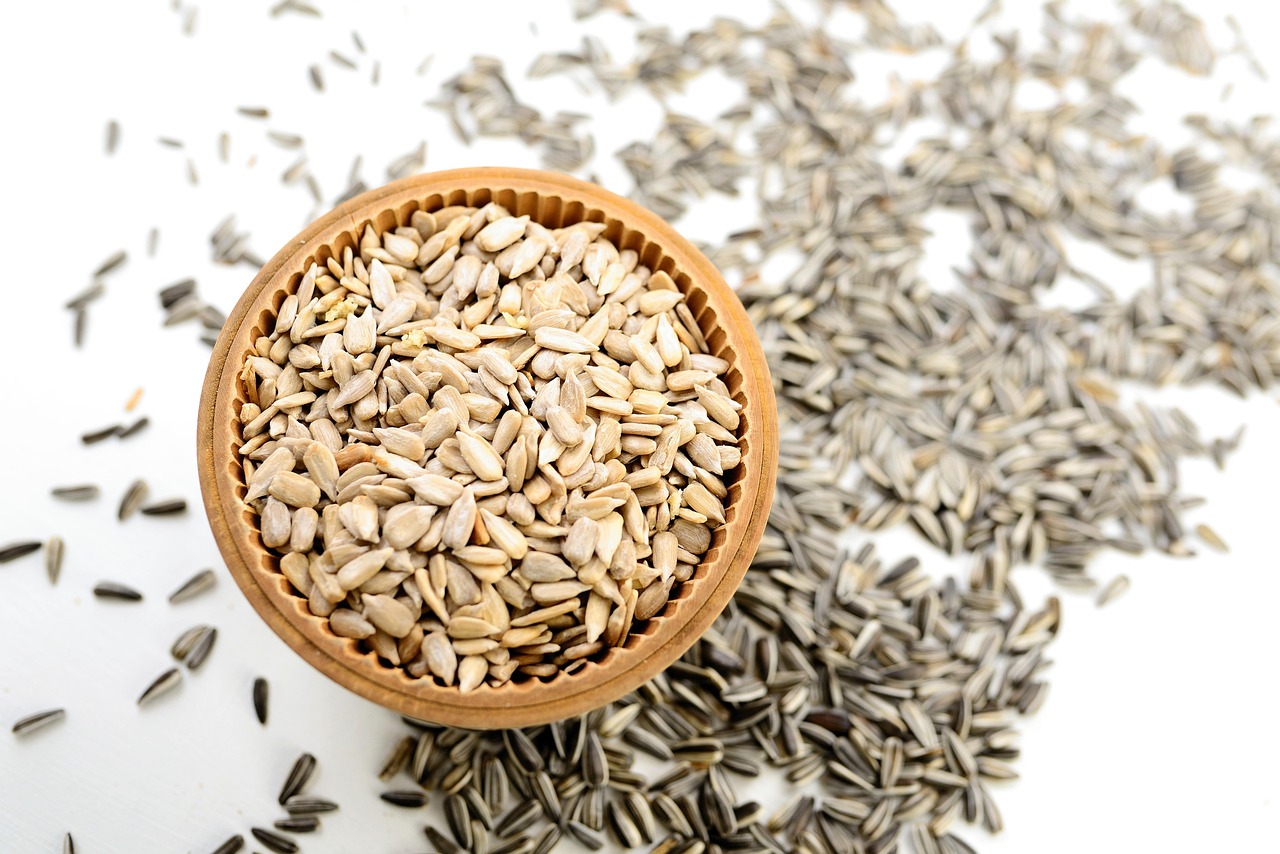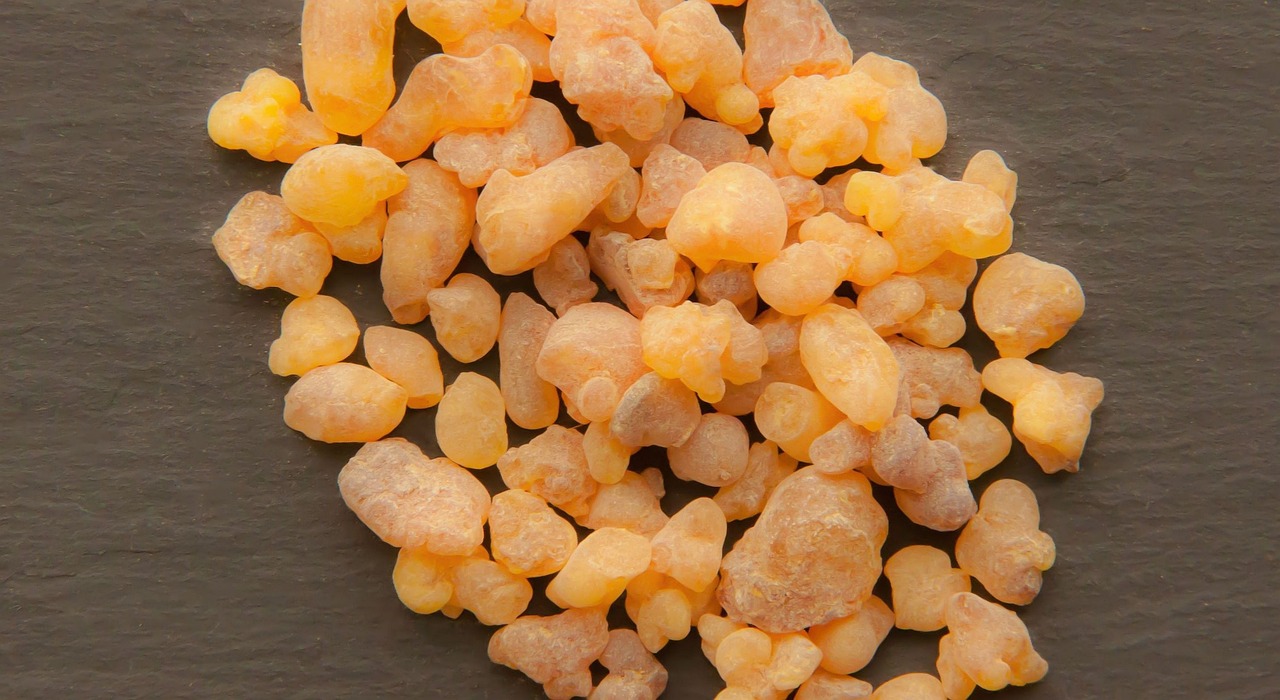This article delves into the advantages of beta-alanine for athletes, exploring its role in enhancing performance, potential side effects, and practical applications in training regimens.
What is Beta-Alanine?
Beta-alanine is a non-essential amino acid that significantly contributes to the synthesis of carnosine. Carnosine serves as a buffering agent in muscles, helping to manage acidity levels during intense physical activities.
How Does Beta-Alanine Improve Athletic Performance?
Research shows that beta-alanine supplementation can enhance endurance and overall performance by effectively reducing muscle fatigue. This allows athletes to train harder, longer, and with greater intensity.
The Science Behind Carnosine
Carnosine, which is formed from beta-alanine and histidine, plays a crucial role in maintaining optimal pH levels within muscles. This buffering capacity delays the onset of fatigue during high-intensity exercise.
Role of Carnosine in Muscle Function
Carnosine acts as a buffer against lactic acid, which tends to accumulate during strenuous workouts, thus improving overall muscle performance.
Studies Supporting Carnosine’s Benefits
Numerous studies have indicated that higher levels of carnosine correlate with improved athletic performance, particularly in activities that require both high-intensity effort and endurance.
Optimal Dosage for Beta-Alanine
Determining the right dosage of beta-alanine is essential for maximizing its benefits while minimizing side effects. Typical recommendations range from 2 to 6 grams daily.
Potential Side Effects of Beta-Alanine
While beta-alanine is generally considered safe, some individuals may experience side effects such as tingling sensations, known as paresthesia, particularly at higher doses.
Understanding Paresthesia
Paresthesia is a benign side effect that occurs when beta-alanine is consumed in large amounts, resulting in temporary tingling sensations in the skin.
Managing Side Effects
To mitigate side effects, it is advisable to gradually increase the dosage of beta-alanine, allowing the body to adapt without discomfort.
Who Can Benefit from Beta-Alanine?
Athletes participating in high-intensity sports such as weightlifting, sprinting, and team sports can experience significant performance enhancements from beta-alanine supplementation.
How to Incorporate Beta-Alanine into Your Diet
Beta-alanine can be found in various dietary supplements, and its incorporation into a balanced diet can greatly enhance athletic performance and recovery.
Supplement Forms of Beta-Alanine
Beta-alanine is available in several forms, including powder, capsules, and tablets, making it easy to integrate into daily routines.
Timing Your Beta-Alanine Intake
For optimal results, consuming beta-alanine before workouts can enhance performance, while regular supplementation supports long-term benefits.
Conclusion: Is Beta-Alanine Right for You?
Beta-alanine offers a multitude of benefits for athletes aiming to improve their performance. By understanding its effects, recommended dosages, and potential side effects, individuals can make informed decisions regarding supplementation.

What is Beta-Alanine?
Beta-alanine is a non-essential amino acid that significantly contributes to the synthesis of carnosine, a dipeptide that plays a vital role in muscle function during high-intensity workouts. Unlike essential amino acids, beta-alanine is produced by the body and can also be obtained through dietary sources such as meats and fish. However, supplementation is often necessary for athletes seeking to maximize their performance.
Carnosine, formed from beta-alanine and histidine, acts as a buffer against acid in the muscles. This buffering capacity is crucial during intense exercise, as it helps to maintain an optimal pH level, thus delaying the onset of muscle fatigue. By reducing acidity, carnosine allows athletes to sustain their performance for longer periods, making beta-alanine a popular supplement among those engaged in high-intensity training.
Incorporating beta-alanine into a training regimen can lead to improved endurance and performance. Studies have shown that athletes who supplement with beta-alanine can experience significant gains in strength and power, particularly in activities that require short bursts of energy, such as sprinting or weightlifting.
Moreover, the effects of beta-alanine supplementation can be cumulative. Regular intake over several weeks can lead to increased muscle carnosine levels, enhancing the body’s ability to buffer lactic acid during workouts. This can translate into better overall performance and reduced recovery time between training sessions.
In conclusion, beta-alanine is a valuable addition to the diets of athletes looking to enhance their performance. Understanding its role in carnosine production and muscle function can help individuals make informed decisions about their supplementation strategies.

How Does Beta-Alanine Improve Athletic Performance?
Beta-alanine is gaining significant attention in the world of sports nutrition due to its potential to enhance athletic performance. Research suggests that this non-essential amino acid plays a vital role in improving endurance and reducing muscle fatigue. This effect allows athletes to push their limits, train harder, and achieve better results.
When beta-alanine is consumed, it combines with another amino acid, histidine, to form carnosine. Carnosine is essential for buffering acid in muscles during high-intensity exercise, which helps maintain optimal pH levels. During strenuous workouts, lactic acid builds up in the muscles, leading to fatigue. By increasing carnosine levels, beta-alanine effectively delays this fatigue, enabling athletes to perform at their best for longer periods.
Numerous studies support the benefits of beta-alanine supplementation. For instance, a study published in the Journal of Applied Physiology found that participants who supplemented with beta-alanine experienced significant improvements in performance during high-intensity activities. Another research indicated that athletes who took beta-alanine could complete more repetitions during strength training sessions, showcasing its impact on both endurance and strength.
Incorporating beta-alanine into a training regimen is relatively straightforward. The typical dosage ranges from 2 to 6 grams per day, and it can be consumed in various forms, including powders, capsules, or tablets. Timing is also crucial; taking beta-alanine before workouts can maximize its benefits, while regular intake ensures sustained performance improvements.
In conclusion, beta-alanine supplementation offers athletes a powerful tool to enhance their performance. By reducing muscle fatigue and improving endurance, it allows for more effective training sessions and better overall results. As with any supplement, it’s essential to consult with a healthcare professional before starting to ensure it’s the right choice for your individual needs.
The Science Behind Carnosine
is a fascinating topic that delves into the biochemical mechanisms that enhance athletic performance. Carnosine is a dipeptide composed of two amino acids: beta-alanine and histidine. It plays a critical role in muscle physiology, particularly during high-intensity exercise.
During strenuous physical activities, the body produces lactic acid, which can lead to a drop in pH levels within the muscles. This drop in pH is a significant factor that contributes to muscle fatigue. Carnosine acts as a buffer, helping to maintain a stable pH by neutralizing the acidity caused by lactic acid accumulation. As a result, athletes can experience delayed onset of fatigue, allowing them to push their limits further.
Research has shown that supplementation with beta-alanine can significantly increase muscle carnosine levels. A higher concentration of carnosine in muscle tissue correlates with improved performance in activities that require short bursts of high energy, such as sprinting or weightlifting. This enhancement is particularly beneficial for athletes engaged in high-intensity sports where maintaining peak performance is crucial.
| Benefits of Carnosine | Mechanism of Action |
|---|---|
| Delays fatigue | Buffers lactic acid |
| Improves endurance | Stabilizes pH levels |
| Enhances recovery | Reduces muscle soreness |
In addition to its buffering capacity, carnosine also exhibits antioxidant properties, which can protect muscle cells from oxidative stress during intense workouts. This multifaceted role of carnosine makes it a vital component for athletes looking to optimize their training and performance.
In conclusion, understanding the science behind carnosine and its impact on muscle function can provide athletes with valuable insights into enhancing their performance. By incorporating beta-alanine supplementation into their training regimen, athletes can potentially improve their endurance and delay fatigue, leading to better overall results.
Role of Carnosine in Muscle Function
Carnosine, a dipeptide composed of beta-alanine and histidine, plays a pivotal role in enhancing muscle function, especially during high-intensity exercise. Its primary function is to act as a buffer against lactic acid, which accumulates in muscles during strenuous activities. This accumulation can lead to fatigue and decreased performance. By buffering lactic acid, carnosine helps maintain an optimal pH level in the muscles, thereby delaying the onset of fatigue and allowing athletes to perform at their best for longer periods.
During intense workouts, the body produces lactic acid as a byproduct of anaerobic metabolism. This acid can lower the pH in muscle cells, leading to the sensation of fatigue and a decrease in muscular strength. Carnosine’s buffering capacity is crucial, as it helps to neutralize this acid, allowing for improved muscle performance and endurance.
Research has shown that athletes with higher levels of carnosine in their muscles can experience significant performance enhancements. For instance, studies indicate that carnosine supplementation can lead to improved times in high-intensity sprints and better overall endurance in various sports. This is particularly beneficial for athletes engaged in activities that require short bursts of energy, such as weightlifting, sprinting, and team sports.
| Benefits of Carnosine | Impact on Performance |
|---|---|
| Buffers lactic acid | Delays fatigue |
| Improves endurance | Enhances training capacity |
| Supports muscle recovery | Reduces soreness post-exercise |
Incorporating beta-alanine into your diet can thus significantly increase carnosine levels in the muscles, leading to improved athletic performance. For those looking to maximize their training results, understanding the role of carnosine is essential.
In conclusion, carnosine serves as a vital component in muscle function, particularly for athletes engaged in high-intensity sports. By acting as a buffer against lactic acid, it not only enhances performance but also contributes to overall muscle health and recovery.
Studies Supporting Carnosine’s Benefits
Numerous scientific studies have investigated the relationship between carnosine levels and athletic performance, revealing compelling evidence that higher concentrations of this dipeptide can lead to enhanced physical capabilities. Carnosine is primarily stored in muscle tissues and plays a pivotal role in managing acidity during high-intensity exercise.
One of the key findings from these studies is that carnosine acts as a buffer against lactic acid accumulation. This is particularly beneficial during prolonged or intense workouts, where muscle fatigue can significantly hinder performance. By delaying the onset of fatigue, athletes can sustain higher levels of exertion for longer periods, thereby improving their overall performance.
A meta-analysis of various research articles indicates that athletes supplementing with beta-alanine, which boosts carnosine synthesis, experience significant improvements in activities such as sprinting, weightlifting, and endurance sports. For instance, a study published in the Journal of Applied Physiology found that participants who supplemented with beta-alanine increased their performance in high-intensity cycling exercises by up to 13% compared to those who did not.
Furthermore, research conducted on elite athletes has shown that higher muscle carnosine levels correlate with improved performance metrics, such as faster sprint times and enhanced strength output. This evidence underscores the importance of carnosine as a critical factor in athletic training and competition.
In conclusion, the body of research supporting the benefits of carnosine is robust and continues to grow. With its ability to buffer acidity and delay fatigue, carnosine supplementation through beta-alanine is a strategy that many athletes are adopting to gain a competitive edge in their respective sports.
Optimal Dosage for Beta-Alanine
Finding the right dosage of beta-alanine is crucial for maximizing its performance-enhancing benefits while minimizing the risk of side effects. Research suggests that the typical daily dosage for beta-alanine supplementation ranges from 2 to 6 grams. However, individual needs may vary based on factors such as body weight, exercise intensity, and personal tolerance levels.
To achieve optimal results, it is advisable to start at the lower end of the dosage spectrum and gradually increase the intake. This approach not only helps in assessing personal tolerance but also reduces the chances of experiencing adverse effects, such as paresthesia, which is a harmless tingling sensation that can occur with higher doses.
| Dosage Range | Effects |
|---|---|
| 2 grams | Initial benefits with minimal side effects |
| 4 grams | Enhanced endurance and performance |
| 6 grams | Maximum benefits, potential for tingling |
It’s essential to note that consistency is key when supplementing with beta-alanine. Regular intake can lead to increased muscle carnosine levels, which may enhance performance during high-intensity activities. Athletes often find that dividing their daily dosage into smaller amounts taken throughout the day can help maintain stable levels in the body and further reduce the risk of side effects.
In conclusion, while the recommended dosage for beta-alanine typically ranges from 2 to 6 grams per day, individual factors should be considered. Starting low and gradually increasing the dosage can help maximize benefits while minimizing side effects, making beta-alanine a valuable addition to an athlete’s training regimen.

Potential Side Effects of Beta-Alanine
Beta-alanine is a popular supplement among athletes due to its performance-enhancing properties. However, like many supplements, it is essential to be aware of its potential side effects. While beta-alanine is generally considered safe, some users may experience certain reactions, particularly when taking higher doses.
One of the most commonly reported side effects is paresthesia, which manifests as a tingling sensation in the skin. This sensation can occur in various parts of the body, including the face, neck, and hands. Although it may be surprising or uncomfortable for some, it is typically harmless and temporary. Paresthesia arises when beta-alanine is consumed in larger quantities, often exceeding 800 mg at once.
To help manage this side effect, it is advisable to gradually increase the dosage of beta-alanine rather than taking a large amount at once. This approach allows the body to acclimate to the supplement, minimizing the likelihood of experiencing tingling sensations.
- Common Side Effects:
- Paresthesia (tingling sensation)
- Gastrointestinal discomfort
- Flushing of the skin
While paresthesia is the most notable side effect, some users may also experience mild gastrointestinal issues, such as stomach cramps or nausea. These effects are usually temporary and can often be alleviated by adjusting the timing of the supplement intake or consuming it with food.
In conclusion, beta-alanine can provide significant benefits for athletic performance, but it is crucial to be aware of its potential side effects. By understanding these effects and adjusting the dosage accordingly, athletes can effectively incorporate beta-alanine into their training regimens while minimizing discomfort.
Understanding Paresthesia
is essential for anyone considering beta-alanine supplementation, especially athletes seeking to enhance their performance. This phenomenon, often described as a tingling or prickling sensation, is a common side effect associated with the consumption of beta-alanine in larger quantities. While it can be startling, it is generally considered a harmless occurrence.
When beta-alanine is ingested, it increases the levels of carnosine in the muscles, which is beneficial for buffering acid during high-intensity workouts. However, the rapid increase in beta-alanine can lead to paresthesia, particularly when doses exceed the typical recommendations of 2 to 6 grams per day.
The sensation of paresthesia is often felt in areas such as the face, neck, and hands. Though it may be uncomfortable for some, it is important to note that it is not indicative of any serious health issue. Instead, it is a temporary effect that usually subsides within an hour after consumption.
To manage this side effect, athletes can consider the following strategies:
- Gradual Dosage Increase: Start with smaller doses and gradually increase to allow your body to adjust.
- Split Dosing: Taking beta-alanine in smaller, more frequent doses throughout the day can minimize the tingling sensation.
- Hydration: Staying well-hydrated may help alleviate some of the discomfort associated with paresthesia.
In conclusion, while paresthesia can be an unexpected effect of beta-alanine supplementation, it is generally harmless and manageable. Understanding this side effect can help athletes make informed decisions about their supplementation strategies, allowing them to focus on their training and performance goals without undue concern.
Managing Side Effects
is an essential aspect of incorporating beta-alanine into your training regimen. While beta-alanine is widely recognized for its performance-enhancing benefits, it can also lead to certain side effects, particularly when taken in higher doses. Understanding how to effectively manage these side effects is crucial for athletes looking to maximize their potential without discomfort.
One of the most common side effects of beta-alanine supplementation is paresthesia, which manifests as a tingling sensation in the skin. This sensation, while generally harmless, can be distracting for some users. To minimize this effect, it is advisable to gradually increase the dosage of beta-alanine rather than starting with a high dose. By doing so, the body can adapt to the supplement more comfortably, allowing athletes to enjoy its benefits without the unpleasant sensations.
- Start Low: Begin with a lower dosage, such as 1-2 grams per day.
- Increase Slowly: Gradually increase the dosage by 0.5 grams every week until reaching the desired amount.
- Split Doses: Consider splitting the daily dosage into smaller amounts taken throughout the day to reduce the intensity of side effects.
- Stay Hydrated: Drinking plenty of water can help alleviate some side effects and improve overall comfort.
By following these guidelines, athletes can effectively manage the side effects associated with beta-alanine supplementation. This approach not only enhances the overall experience but also ensures that users can focus on achieving their performance goals without unnecessary distractions.
In conclusion, gradually increasing the dosage of beta-alanine is a practical strategy for mitigating side effects. This method allows the body to adapt naturally, leading to a more comfortable and effective supplementation experience. As always, it is recommended to consult with a healthcare professional before starting any new supplement regimen to ensure it aligns with individual health needs and goals.

Who Can Benefit from Beta-Alanine?
Athletes engaged in high-intensity sports such as weightlifting, sprinting, and various team sports can experience remarkable performance enhancements through beta-alanine supplementation. This non-essential amino acid is particularly beneficial for those who need to maximize their output during short bursts of intense exercise.
Beta-alanine plays a critical role in the production of carnosine, a compound that helps buffer acid in muscles. By increasing carnosine levels, athletes can significantly reduce muscle fatigue, enabling them to push through challenging workouts and improve their overall performance.
- Weightlifters: Those involved in weightlifting can benefit from beta-alanine as it allows them to lift heavier weights for longer periods, enhancing muscle growth and strength.
- Sprint Athletes: Sprinters can experience increased speed and power during their races, as beta-alanine helps delay the onset of fatigue.
- Team Sports Players: Athletes in sports like soccer, basketball, and rugby can utilize beta-alanine to maintain high energy levels throughout the game, improving endurance and overall performance.
Moreover, individuals participating in high-intensity interval training (HIIT) can also see significant benefits. This training method requires quick bursts of effort followed by short recovery periods, making beta-alanine a valuable addition to their regimen.
In conclusion, beta-alanine supplementation can provide a competitive edge for athletes in various high-intensity sports. By enhancing performance, reducing fatigue, and improving overall training outcomes, it stands as a vital tool for those looking to elevate their athletic capabilities.

How to Incorporate Beta-Alanine into Your Diet
Incorporating beta-alanine into your diet can be a game-changer for enhancing athletic performance and recovery. This non-essential amino acid is found in various supplements and can be easily integrated into your daily routine. Below are some practical insights on how to effectively include beta-alanine in your diet.
- Supplement Forms: Beta-alanine is available in multiple forms, including powders, capsules, and tablets. Choose the form that best fits your lifestyle and preferences.
- Timing of Intake: For optimal results, consider consuming beta-alanine about 30 minutes before your workout. This timing can help maximize its performance-enhancing effects during high-intensity training.
- Daily Dosage: The recommended dosage typically ranges from 2 to 6 grams per day. It’s advisable to start at the lower end and gradually increase to assess your tolerance.
- Mixing with Other Supplements: Beta-alanine can be effectively combined with other supplements such as creatine or branched-chain amino acids (BCAAs) to enhance overall performance and recovery.
- Dietary Sources: While beta-alanine is primarily obtained through supplementation, it can also be found in small amounts in certain foods such as chicken, turkey, and fish. Including these protein sources in your diet can provide additional benefits.
Long-Term Supplementation: Regular supplementation of beta-alanine can lead to increased muscle carnosine levels, which helps buffer acid during intense exercise, delaying fatigue and improving performance. Consistency is key, so aim for daily intake to reap the long-term benefits.
In conclusion, incorporating beta-alanine into your diet is straightforward and can significantly enhance your athletic performance. By understanding the various forms, dosages, and timing, you can effectively utilize this supplement to support your training and recovery goals.
Supplement Forms of Beta-Alanine
Beta-alanine is a popular supplement among athletes and fitness enthusiasts, primarily due to its ability to enhance performance and delay fatigue. It is available in various forms, which makes it convenient for users to incorporate into their daily routines. Here, we will explore the different forms of beta-alanine supplementation and their respective benefits.
- Powder: Beta-alanine in powder form is one of the most common and versatile options. It can easily be mixed with water, smoothies, or protein shakes. This form allows for customizable dosing, enabling users to adjust their intake based on their specific needs.
- Capsules: For those who prefer a more convenient option, beta-alanine capsules are ideal. They are easy to swallow and provide a pre-measured dose, making it simple to track daily intake without the need for measuring scoops.
- Tablets: Similar to capsules, tablets offer a straightforward way to consume beta-alanine. They often contain additional ingredients that may enhance performance or recovery, providing a comprehensive supplement experience.
Regardless of the form chosen, it is essential to consider the timing of beta-alanine intake. Consuming it before workouts can maximize its performance-enhancing effects, while regular daily supplementation can support long-term benefits.
In conclusion, the availability of beta-alanine in powder, capsule, and tablet forms makes it accessible and easy to integrate into various lifestyles. Athletes and fitness enthusiasts can choose the form that best suits their preferences and needs, ensuring they can effectively leverage the benefits of this powerful supplement.
Timing Your Beta-Alanine Intake
When it comes to maximizing the benefits of beta-alanine supplementation, timing plays a crucial role. Understanding when to take beta-alanine can significantly influence its effectiveness in enhancing athletic performance.
Pre-Workout Benefits
For optimal performance during workouts, consuming beta-alanine before training sessions is highly recommended. This timing allows the amino acid to be readily available in the bloodstream, where it can quickly support the production of carnosine. Carnosine acts as a buffer against acid buildup in muscles, which is particularly beneficial during high-intensity exercises.
Daily Supplementation
In addition to pre-workout consumption, regular supplementation of beta-alanine is essential for achieving long-term benefits. Studies suggest that maintaining elevated levels of carnosine in the muscles can improve endurance and delay fatigue over time. Therefore, incorporating beta-alanine into your daily routine, regardless of workout timing, can lead to sustained performance improvements.
Loading Phase Strategy
Many athletes adopt a loading phase strategy when starting beta-alanine supplementation. This involves taking higher doses (typically around 4-6 grams) for the first week, followed by a maintenance dose of 2-3 grams daily. This approach helps saturate the muscles with carnosine more quickly, maximizing its performance-enhancing effects.
Combining with Other Supplements
For those looking to enhance their pre-workout routine, combining beta-alanine with other supplements, such as citrulline malate or creatine, can provide synergistic effects. This combination can further improve endurance, strength, and overall workout performance.
Conclusion
In summary, the timing of beta-alanine intake is vital for athletes seeking to enhance their performance. Consuming it before workouts and maintaining a consistent daily regimen can yield significant benefits, allowing athletes to push their limits and achieve their fitness goals.

Conclusion: Is Beta-Alanine Right for You?
Beta-alanine has emerged as a popular supplement among athletes seeking to improve their performance. Its ability to enhance endurance and reduce muscle fatigue makes it an appealing choice for those engaged in high-intensity training. However, before incorporating beta-alanine into your regimen, it’s essential to understand its benefits, potential side effects, and optimal usage.
Benefits of Beta-Alanine
- Improved Endurance: Studies have shown that beta-alanine supplementation can significantly increase exercise performance, particularly in activities lasting 1 to 4 minutes.
- Reduced Muscle Fatigue: By buffering lactic acid buildup, beta-alanine helps delay the onset of fatigue, allowing athletes to push harder and longer during workouts.
- Enhanced Recovery: Regular use can also support quicker recovery times between intense training sessions, helping athletes maintain a consistent workout schedule.
Potential Side Effects
While generally safe, some users may experience paresthesia, a harmless tingling sensation. This side effect can be minimized by starting with lower doses and gradually increasing them.
Who Should Consider Supplementation?
Athletes involved in sports that require bursts of high-intensity effort, such as weightlifting, sprinting, or team sports, can particularly benefit from beta-alanine. However, it’s advisable for individuals to consult with a healthcare provider before starting any new supplement.
How to Use Beta-Alanine Effectively
For optimal results, beta-alanine should be taken consistently, with daily doses ranging from 2 to 6 grams. Timing your intake around workouts can maximize its performance-enhancing effects.
Final Thoughts
In conclusion, beta-alanine can be a valuable addition to an athlete’s supplement arsenal, offering numerous performance benefits. By understanding how to use it effectively and being aware of potential side effects, athletes can make informed decisions that align with their training goals.
















